#Hospice Care
Text
America's largest hospital chain has an algorithmic death panel
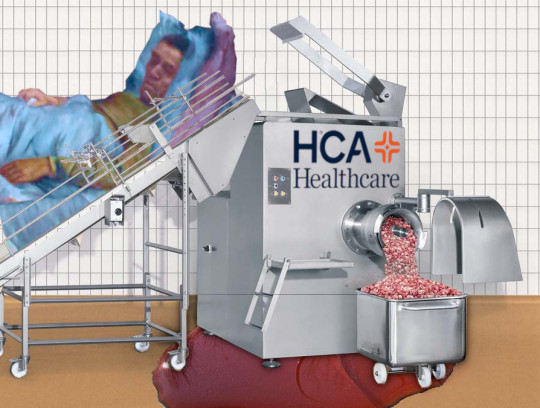
It’s not that conservatives aren’t sometimes right — it’s that even when they’re right, they’re highly selective about it. Take the hoary chestnut that “incentives matter,” trotted out to deny humane benefits to poor people on the grounds that “free money” makes people “workshy.”
There’s a whole body of conservative economic orthodoxy, Public Choice Theory, that concerns itself with the motives of callow, easily corrupted regulators, legislators and civil servants, and how they might be tempted to distort markets.
But the same people who obsess over our fallible public institutions are convinced that private institutions will never yield to temptation, because the fear of competition keeps temptation at bay. It’s this belief that leads the right to embrace monopolies as “efficient”: “A company’s dominance is evidence of its quality. Customers flock to it, and competitors fail to lure them away, therefore monopolies are the public’s best friend.”
But this only makes sense if you don’t understand how monopolies can prevent competitors. Think of Uber, lighting $31b of its investors’ cash on fire, losing 41 cents on every dollar it brought in, in a bid to drive out competitors and make public transit seem like a bad investment.
Or think of Big Tech, locking up whole swathes of your life inside their silos, so that changing mobile OSes means abandoning your iMessage contacts; or changing social media platforms means abandoning your friends, or blocking Google surveillance means losing your email address, or breaking up with Amazon means losing all your ebooks and audiobooks:
https://www.eff.org/deeplinks/2021/08/facebooks-secret-war-switching-costs
Businesspeople understand the risks of competition, which is why they seek to extinguish it. The harder it is for your customers to leave — because of a lack of competitors or because of lock-in — the worse you can treat them without risking their departure. This is the core of enshittification: a company that is neither disciplined by competition nor regulation can abuse its customers and suppliers over long timescales without losing either:
https://pluralistic.net/2023/01/21/potemkin-ai/#hey-guys
It’s not that public institutions can’t betray they public interest. It’s just that public institutions can be made democratically accountable, rather than financially accountable. When a company betrays you, you can only punish it by “voting with your wallet.” In that system, the people with the fattest wallets get the most votes.
When public institutions fail you, you can vote with your ballot. Admittedly, that doesn’t always work, but one of the major predictors of whether it will work is how big and concentrated the private sector is. Regulatory capture isn’t automatic: it’s what you get when companies are bigger than governments.
If you want small governments, in other words, you need small companies. Even if you think the only role for the state is in enforcing contracts, the state needs to be more powerful than the companies issuing those contracts. The bigger the companies are, the bigger the government has to be:
https://doctorow.medium.com/regulatory-capture-59b2013e2526
Companies can suborn the government to help them abuse the public, but whether public institutions can resist them is more a matter of how powerful those companies are than how fallible a public servant is. Our plutocratic, monopolized, unequal society is the worst of both worlds. Because companies are so big, they abuse us with impunity — and they are able to suborn the state to help them do it:
https://www.cambridge.org/core/journals/perspectives-on-politics/article/testing-theories-of-american-politics-elites-interest-groups-and-average-citizens/62327F513959D0A304D4893B382B992B
This is the dimension that’s so often missing from the discussion of why Americans pay more for healthcare to get worse outcomes from health-care workers who labor under worse conditions than their cousins abroad. Yes, the government can abet this, as when it lets privatizers into the Medicare system to loot it and maim its patients:
https://prospect.org/health/2023-08-01-patient-zero-tom-scully/
But the answer to this isn’t more privatization. Remember Sarah Palin’s scare-stories about how government health care would have “death panels” where unaccountable officials decided whether your life was worth saving?
https://pubmed.ncbi.nlm.nih.gov/26195604/
The reason “death panels” resounded so thoroughly — and stuck around through the years — is that we all understand, at some deep level, that health care will always be rationed. When you show up at the Emergency Room, they have to triage you. Even if you’re in unbearable agony, you might have to wait, and wait, and wait, because other people (even people who arrive after you do) have it worse.
In America, health care is mostly rationed based on your ability to pay. Emergency room triage is one of the only truly meritocratic institutions in the American health system, where your treatment is based on urgency, not cash. Of course, you can buy your way out of that too, with concierge doctors. And the ER system itself has been infested with Private Equity parasites:
https://pluralistic.net/2022/11/17/the-doctor-will-fleece-you-now/#pe-in-full-effect
Wealth-based health-care rationing is bad enough, but when it’s combined with the public purse, a bad system becomes a nightmare. Take hospice care: private equity funds have rolled up huge numbers of hospices across the USA and turned them into rigged — and lethal — games:
https://pluralistic.net/2023/04/26/death-panels/#what-the-heck-is-going-on-with-CMS
Medicare will pay a hospice $203-$1,462 to care for a dying person, amounting to $22.4b/year in public funds transfered to the private sector. Incentives matter: the less a hospice does for their patients, the more profits they reap. And the private hospice system is administered with the lightest of touches: at the $203/day level, a private hospice has no mandatory duties to their patients.
You can set up a California hospice for the price of a $3,000 filing fee (which is mostly optional, since it’s never checked). You will have a facility inspection, but don’t worry, there’s no followup to make sure you remediate any failing elements. And no one at the Centers for Medicare & Medicaid Services tracks complaints.
So PE-owned hospices pressure largely healthy people to go into “hospice care” — from home. Then they do nothing for them, including continuing whatever medical care they were depending on. After the patient generates $32,000 in billings for the PE company, they hit the cap and are “live discharged” and must go through a bureaucratic nightmare to re-establish their Medicare eligibility, because once you go into hospice, Medicare assumes you are dying and halts your care.
PE-owned hospices bribe doctors to refer patients to them. Sometimes, these sham hospices deliberately induce overdoses in their patients in a bid to make it look like they’re actually in the business of caring for the dying. Incentives matter:
https://www.newyorker.com/magazine/2022/12/05/how-hospice-became-a-for-profit-hustle
Now, hospice care — and its relative, palliative care — is a crucial part of any humane medical system. In his essential book, Being Mortal, Atul Gawande describes how end-of-life care that centers a dying person’s priorities can make death a dignified and even satisfying process for the patient and their loved ones:
https://atulgawande.com/book/being-mortal/
But that dignity comes from a patient-centered approach, not a profit-centered one. Doctors are required to put their patients’ interests first, and while they sometimes fail at this (everyone is fallible), the professionalization of medicine, through which doctors were held to ethical standards ahead of monetary considerations, proved remarkable durable.
Partly that was because doctors generally worked for themselves — or for other doctors. In most states, it is illegal for medical practices to be owned by non-MDs, and historically, only a small fraction of doctors worked for hospitals, subject to administration by businesspeople rather than medical professionals.
But that was radically altered by the entry of private equity into the medical system, with the attending waves of consolidation that saw local hospitals merged into massive national chains, and private practices scooped up and turned into profit-maximizers, not health-maximizers:
https://prospect.org/health/2023-08-02-qa-corporate-medicine-destroys-doctors/
Today, doctors are being proletarianized, joining the ranks of nurses, physicians’ assistants and other health workers. In 2012, 60% of practices were doctor-owned and only 5.6% of docs worked for hospitals. Today, that’s up by 1,000%, with 52.1% of docs working for hospitals, mostly giant corporate chains:
https://prospect.org/health/2023-08-04-when-mds-go-union/
The paperclip-maximizing, grandparent-devouring transhuman colony organism that calls itself a Private Equity fund is endlessly inventive in finding ways to increase its profits by harming the rest of us. It’s not just hospices — it’s also palliative care.
Writing for NBC News, Gretchen Morgenson describes how HCA Healthcare — the nation’s largest hospital chain — outsourced its death panels to IBM Watson, whose algorithmic determinations override MDs’ judgment to send patients to palliative care, withdrawing their care and leaving them to die:
https://www.nbcnews.com/health/health-care/doctors-say-hca-hospitals-push-patients-hospice-care-rcna81599
Incentives matter. When HCA hospitals send patients to die somewhere else to die, it jukes their stats, reducing the average length of stay for patients, a key metric used by HCA that has the twin benefits of making the hospital seem like a place where people get well quickly, while freeing up beds for more profitable patients.
Goodhart’s Law holds that “When a measure becomes a target, it ceases to be a good measure.” Give an MBA within HCA a metric (“get patients out of bed quicker”) and they will find a way to hit that metric (“send patients off to die somewhere else, even if their doctors think they could recover”):
https://en.wikipedia.org/wiki/Goodhart%27s_law
Incentives matter! Any corporate measure immediately becomes a target. Tell Warners to decrease costs, and they will turn around and declare the writers’ strike to be a $100m “cost savings,” despite the fact that this “savings” comes from ceasing production on the shows that will bring in all of next year’s revenue:
https://deadline.com/2023/08/warner-bros-discovery-david-zaslav-gunnar-wiedenfels-strikes-1235453950/
Incentivize a company to eat its seed-corn and it will chow down.
Only one of HCA’s doctors was willing to go on record about its death panels: Ghasan Tabel of Riverside Community Hospital (motto: “Above all else, we are committed to the care and improvement of human life”). Tabel sued Riverside after the hospital retaliated against him when he refused to follow the algorithm’s orders to send his patients for palliative care.
Tabel is the only doc on record willing to discuss this, but 26 other doctors talked to Morgenson on background about the practice, asking for anonymity out of fear of retaliation from the nation’s largest hospital chain, a “Wall Street darling” with $5.6b in earnings in 2022.
HCA already has a reputation as a slaughterhouse that puts profits before patients, with “severe understaffing”:
https://www.nbcnews.com/health/health-news/workers-us-hospital-giant-hca-say-puts-profits-patient-care-rcna64122
and rotting, undermaintained facililties:
https://www.nbcnews.com/health/health-care/roaches-operating-room-hca-hospital-florida-rcna69563
But while cutting staff and leaving hospitals to crumble are inarguable malpractice, the palliative care scam is harder to pin down. By using “AI” to decide when patients are beyond help, HCA can employ empiricism-washing, declaring the matter to be the factual — and unquestionable — conclusion of a mathematical process, not mere profit-seeking:
https://pluralistic.net/2023/07/26/dictators-dilemma/ggarbage-in-garbage-out-garbage-back-in
But this empirical facewash evaporates when confronted with whistleblower accounts of hospital administrators who have no medical credentials berating doctors for a “missed hospice opportunity” when a physician opts to keep a patient under their care despite the algorithm’s determination.
This is the true “AI Safety” risk. It’s not that a chatbot will become sentient and take over the world — it’s that the original artificial lifeform, the limited liability company, will use “AI” to accelerate its murderous shell-game until we can’t spot the trick:
https://pluralistic.net/2023/06/10/in-the-dumps-2/
The risk is real. A 2020 study in the Journal of Healthcare Management concluded that the cash incentives for shipping patients to palliatve care “may induce deceiving changes in mortality reporting in several high-volume hospital diagnoses”:
https://journals.lww.com/jhmonline/Fulltext/2020/04000/The_Association_of_Increasing_Hospice_Use_With.7.aspx
Incentives matter. In a private market, it’s always more profitable to deny care than to provide it, and any metric we bolt onto that system to prevent cheating will immediately become a target. For-profit healthcare is an oxymoron, a prelude to death panels that will kill you for a nickel.
Morgenson is an incisive commentator on for-profit looting. Her recent book These Are the Plunderers: How Private Equity Runs — and Wrecks — America (co-written with Joshua Rosner) is a must-read:
https://pluralistic.net/2023/06/02/plunderers/#farben
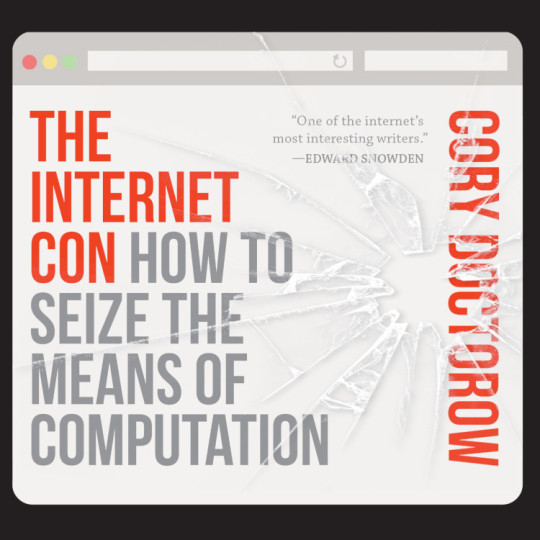
I’m kickstarting the audiobook for “The Internet Con: How To Seize the Means of Computation,” a Big Tech disassembly manual to disenshittify the web and bring back the old, good internet. It’s a DRM-free book, which means Audible won’t carry it, so this crowdfunder is essential. Back now to get the audio, Verso hardcover and ebook:
http://seizethemeansofcomputation.org

If you'd like an essay-formatted version of this thread to read or share, here's a link to it on pluralistic.net, my surveillance-free, ad-free, tracker-free blog:
https://pluralistic.net/2023/08/05/any-metric-becomes-a-target/#hca

[Image ID: An industrial meat-grinder. A sick man, propped up with pillows, is being carried up its conveyor towards its hopper. Ground meat comes out of the other end. It bears the logo of HCA healthcare. A pool of blood spreads out below it.]

Image:
Seydelmann (modified)
https://commons.wikimedia.org/wiki/File:GW300_1.jpg
CC BY 3.0
https://creativecommons.org/licenses/by-sa/3.0/deed.en
#pluralistic#hca healthcare#Gretchen Morgenson incentives matter#death panels#medicare for all#ibm watson#the algorithm#algorithmic harms#palliative care#hospice#hospice care#business#incentives matter#any metric becomes a target#goodhart's law
538 notes
·
View notes
Text
Friendly reminder that prenatal children with a terminal diagnosis have a right to hospice/palliative care, and parents have a right to obtain emotional and psychological support through that time.
82 notes
·
View notes
Text
Lives Worth Living Chapter 0
CW: Hospice Care/Deathbed
(It's been years since you were all last together. The days of you traveling together had long passed, and now your lives had all settled into their own places. You and Isa were now married and had moved in together in Jouvente, where you often helped Isa at his wonderful little Tailor shop. Mirabelle had moved to Bambouche with Bonnie and Nille to open her own House of Change and spread the gift of her belief with all those who would like to accept it, and finally Odile... a world renowned professor on the theory of craft and its various applications... and one we would soon lose as she laid on her deathbed.)
(It's nice to see everyone again after so long, though the circumstances in which you find yourselves does make it a bit awkward. You all sit silently in the somewhat familiar living room of the famed researcher, who was spending her last days at home in hospice care, other than Bonnie and Nille, the former of which frantically working in the kitchen as the latter supervised. Bonnie never broke the habit of trying to solve everything with snack time, though to their credit it did work a good portion of the time.)
(After what feels like an eternity of waiting, no one even knowing where to begin with what to say, just waiting on the doctor to give the go ahead, they finally exit her room and approach our gathered little family.)
"She's ready to see you all now." (They say, with a trained, soft tone, the voice of someone who cares but sees this far too often to let themselves care too much... as if acting in a play, you think to yourself almost nostalgically...)
(As the other two are collected and you all crowd into the room, stifled sobs and gasps fill the air, seeing the once so well kept and excellently postured researcher of your group, reduced to such a fragile state.)
"Gems alive, you all need to work on your poker faces." (She rasps out in her weakened state in a light hearted manner, still proving to be the most mentally hearty, even in the face of this.)
"Sorry Madame Odile, it's just hard to see you without a ruler in your hand, shouting at kids to get off your lawn." (Isa chimes in through his uneasy voice, trying not to choke up as he speaks. Despite being such a big loveable oaf, he was always the softest out of all of us.)
"And you, our own little head housemaiden, I know that look, and don't even try it... there's nothing to heal, nothing to fix... it's simply my time." (Odile said, shocking Mirabelle out of her thought spiral. Even in her final moments she was still better at reading us all than ourselves, and just as blunt in spite of that.)
"I-I made your favorite, Dile." (Bonnie stammers out, fighting back a wave of tears as they hold up a plate of Onigiri filled with pickled plums, as fresh as can be. We all know she won't be able to have any, but the gesture alone was enough to bring a bright, genuine smile to Odile's face.)
"Oh Boniface... come here dear." (Bonnie almost moved faster than could be seen to the naked eye, burying their face into Odile's body as they gripped her in such a careful but loving hug, unable to stop from sobbing now while their grandmother figure just rests her pruned and shaking hands on their back.)
"Well... you must be simply dying to chime in with some horrid pun by now." (You find your eyes locked with hers suddenly as her words rolled out towards you, almost feeling like a deer in headlights since you always did prefer the background after all.)
(You must have something for this, you can't miss your moment in such a grim time.)
"I'm too lost in regret for never figuring out your top secret research topic."
> "Simply dying huh?"
"Just desperately trying to figure out how to start looping again."
"Oh dear, it seems your incessant word play has rubbed off on me, the horror." (She teased in her familiar dry way, though it's still a nice moment as you both share a half smile, leaving the rest unspoken, as there was no need to say it aloud, you both already knew all there was to say.)
(You find yourself tuning out for most of the rest of this, after all, you had your moment already, and it was all the both of you needed, everyone else could have theirs now.)
(You don't know how much time has passed, but a harsh cough suddenly snaps you out of it. Odile rasps sharply for as much air as her failing lungs could manage, sighing it back out as she takes a moment to collect herself.)
"... It's time... No looping our way out of this one, huh Siffrin?" (She tries to smile, but she was too weak to hold it for long. You return one in kind as you feel a tear start to pour down your cheek, almost wishing you could still at this point. You simply walk beside her and take her hand, Bonnie and Mirabelle having taken the other already and gripping it as firm as can be without causing her pain, Isabeau soon joining and taking both your and her hand in his own massive one.)
(Time slows, each second getting longer than the last, Odile's eyelids getting heavier and lower, it only takes a few moment, but we were all there, holding on tight, lost in an endless, painful moment, a sharp pain through your heart as you lose one of your closest family members... when you start to feel a... tug... on your... sto-)

"FRIIIIIN! FRIIIIN WAKE UP! WE DID IT! IT'S TOMORROW! NO MORE KING! NO MORE LOOPS! WE CAN GO GET MY SISTER NOW!!"
#isat#isat spoilers#in stars and time spoilers#in stars and time#isat au#in stars and time fanfic#lives worth living au#lwlau#hospice care
26 notes
·
View notes
Text
Its safe to say that I have found my passion for hospice care but having pediatric patients kicks me in my fucking chest every time.....
I had to admit and fufill a narcotic order for a 1.5kg new born baby. They were only 2 weeks old. A few weeks ago, we had a 2 year old come on service.
7 notes
·
View notes
Text
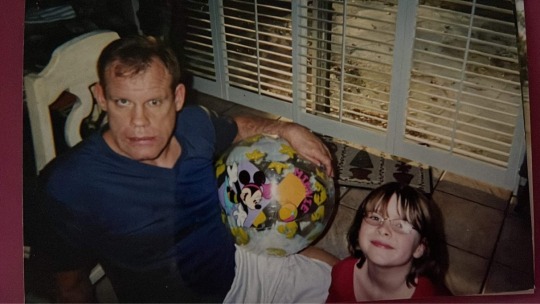

This is my cousin, David, he has special needs. He is mentally maybe 5 or 6. The first picture is the first time we met in person that I remember, 21+ years ago lol. David shared his ball with me and we were playing with toys on the floor at his house, in Florida. The second one I took in February, at our house. He’s been living nearby with my grandma since 2019, and has lived at home with me since January of this year.
David is on hospice and I am his full time caregiver, have been since December. It’s the hardest job I’ve ever had, but also the best. I don’t get paid for the work I do, as the US government is so fucking slow. I’ll never see any money from this job. But what I’ve been given is invaluable. I may even pursue nursing or something else in that field. He has helped me find a passion for something I never considered.
I’m beyond sad David will be passing away soon. It’s really odd waiting around for death. Grieving for someone as you care for them is so difficult. I want to soak up the moments but I also have to try and make time for me. Yet I feel guilty for doing things for myself. It’s weird.
I feel bad for wanting it to be soon. As I don’t want him to die, but I hate seeing him like this. He has no enjoyment in anything. I miss how he used to be. That is how I’ll choose to remember him. I’ll miss him forever, but I’ve been blessed with all this extra time with him. I love David so very much.
I just needed somewhere to let these feelings out. Thank you for reading 🤍✨
4 notes
·
View notes
Text
Former President Jimmy Carter, who at 98 years old is the longest-lived American president, has entered home hospice care in Plains, Georgia, a statement from The Carter Center confirmed Saturday.
After a series of short hospital stays, the statement said, Carter “decided to spend his remaining time at home with his family and receive hospice care instead of additional medical intervention.”
The statement said the 39th president has the full support of his medical team and family, which “asks for privacy at this time and is grateful for the concern shown by his many admirers.”
Carter was a little-known Georgia Governor when he began his bid for the presidency ahead of the 1976 election. He went on to defeat then-President Gerald R. Ford, capitalizing as a Washington outsider in the wake of the Vietnam War and the Watergate scandal that drove Richard Nixon from office in 1974.
Carter served a single, tumultuous term and was defeated by Republican Ronald Reagan in 1980, a landslide loss that ultimately paved the way for his decades of global advocacy for democracy, public health and human rights via The Carter Center.
The former president and his wife, Rosalynn, 95, opened the center in 1982. His work there garnered a Nobel Peace Prize in 2002.
Jason Carter, the couple’s grandson who now chairs The Carter Center governing board, said Saturday in a tweet that he “saw both of my grandparents yesterday. They are at peace and — as always — their home is full of love.”
Carter, who has lived most of his life in Plains, traveled extensively into his 80s and early 90s, including annual trips to build homes with Habitat for Humanity and frequent trips abroad as part of the Carter Center’s election monitoring and its effort to eradicate the Guinea worm parasite in developing countries. But the former president’s health has declined over his 10th decade of life, especially as the coronavirus pandemic limited his public appearances, including at his beloved Maranatha Baptist Church where he taught Sunday School lessons for decades before standing-room-only crowds of visitors.
In August 2015, Carter had a small cancerous mass removed from his liver. The following year, Carter announced that he needed no further treatment, as an experimental drug had eliminated any sign of cancer.
Carter celebrated his most recent birthday in October with family and friends in Plains, the tiny town where he and his wife, Rosalynn, were born in the years between World War I and The Great Depression.
The Carter Center last year marked 40 years of promoting its human rights agenda. The Center has been a pioneer of election observation, monitoring at least 113 elections in Africa, Latin America, and Asia since 1989.
In perhaps its most widely hailed public health effort, the organization recently announced that only 14 human cases of Guinea worm disease were reported in all of 2021, the result of years of public health campaigns to improve access to safe drinking water in Africa. That’s a staggering drop from when The Carter Center began leading the global eradication effort in 1986, when the parasitic disease infected 3.5 million people. Carter once said he hoped to live longer than the last Guinea worm parasite.
Carter was born Oct. 1, 1924, to a prominent family in rural south Georgia. He went on to the U.S. Naval Academy during World War II and pursued a career as a Cold War Naval officer before returning to Plains, Georgia, with Rosalynn and their young family to take over the family peanut business after Earl Carter’s death in the 1950s.
A moderate Democrat, the younger Carter rapidly climbed from the local school board to the state Senate and then the Georgia Governor’s office. He began his White House bid as an underdog with outspoken Baptist mores and technocratic plans reflecting his education as an engineer. He connected with many Americans because of his promise not to deceive the American people after Nixon’s disgrace and U.S. defeat in southeast Asia.
“If I ever lie to you, if I ever make a misleading statement, don’t vote for me. I would not deserve to be your President,” Carter said often as he campaigned.
Carter, who came of age politically during the civil rights movement, was the last Democratic presidential nominee to sweep the Deep South, before the region shifted quickly to Reagan and the Republicans in subsequent elections. He governed amid Cold War pressures, turbulent oil markets and social upheaval over racism, women’s rights and America’s global role.
Carter’s foreign policy wins included brokering Mideast peace by keeping Egyptian President Anwar Sadat and Israeli Prime Minister Menachem Begin at the bargaining table for 13 days in 1978. That Camp David experience inspired the post-presidential center where Carter would establish so much of his legacy. Carter also built on Nixon’s opening with China, and though he tolerated autocrats in Asia, pushed Latin America from dictatorships to democracy.
At home, Carter partially deregulated the airline, railroad and trucking industries and established the departments of Education and Energy, and the Federal Emergency Management Agency. He designated millions of acres in Alaska as national parks or wildlife refuges. He appointed a then-record number of women and non-whites to federal posts. He never had a Supreme Court nomination, but he elevated civil rights attorney Ruth Bader Ginsburg to the nation’s second-highest court, positioning her for a promotion in 1993.
Yet Carter’s electoral coalition splintered under double-digit inflation, gasoline lines and the 444-day hostage crisis in Iran. His bleakest hour came when eight Americans died in a failed hostage rescue in April 1980, helping to ensure his landslide defeat.
For years after his loss, Carter largely receded from electoral politics. Democrats were hesitant to embrace him. Republicans made him a punchline, caricaturing him as a hapless liberal. In reality, Carter governed more as a technocrat, more progressive on race and gender equality than he had campaigned but a budget hawk who often angered more liberal Democrats, including Ted Kennedy, the Massachusetts Senator who waged a damaging primary battle against the sitting President in 1980.
Carter said after leaving office that he had underestimated the importance of dealing with Washington power brokers, including the media and lobbying forces anchored in the nation’s capital. But he insisted his overall approach was sound and that he achieved his primary objectives — to “protect our nation’s security and interests peacefully” and “enhance human rights here and abroad” — even if he fell spectacularly short of a second term.
And years later, upon his cancer diagnosis as a nonagenarian, he expressed satisfaction with his long life.
“I’m perfectly at ease with whatever comes,” he said in 2015. “I’ve had an exciting, adventurous and gratifying existence.”
#us politics#news#president jimmy carter#carter administration#2023#hospice care#cnbc#us history#The Carter Center#rosalynn carter#Habitat for Humanity#election monitoring#Guinea worm parasite#Georgia#peanut farm#Federal Emergency Management Agency#department of education#department of energy#Ruth Bader Ginsburg#Iran hostage crisis#cancer
18 notes
·
View notes
Text
So my “Serious Illness, Death, and Dying” class started today and we were supposed to watch Being Mortal (a pbs documentary on end of life conversations) and it already made me cry. This is gonna be an emotional class 😭
#it’s also so interesting though#it’s on YouTube in case anyone is interested#palliative care#hospice care#grad school#personal
9 notes
·
View notes
Text
Okay I need to post this somewhere or I’m going to lose it
Okay, so I’m in the hospital and they got me on a shit ton on drugs and last night I had a fucking vision of a dream
I dreamt Crowley from Good Omens got pregnant with Jesus and referred to themselves as a homoerotic genderless romantic that was the new Virgin Mary but gayer
Then Aziraphel came back from heaven to help Crowley but it was awkward and full of angst but then when Jesus was born is was a gender-fluid horse that could talk
Now… do I need to talk to my nurses about they drugs they give me or am I onto something???
#good omemes#aziraphel#crowley#rant post#gay#neil gaiman#jesus#hospice care#good omens#aziracrow#azirafell
5 notes
·
View notes
Text




Domhnall with representatives of various hospices in Ireland (Mayo, South Westmeath, Wicklow and Offaly) to promote and support Big Coffee Morning fund raising events, in aid of hospice care.
To donate check this website:
#domhnall gleeson#bewley‘s big coffee morning social for hospice#charity#hospice care#ireland#bewley’s on grafton street
5 notes
·
View notes
Link
Their baby was diagnosed with Edwards’ syndrome at their first scan. Edwards’ syndrome, also known as Trisomy 18, is a genetic condition that means the child is unlikely to survive for very long outside of the womb — although in some cases, people with Edwards’ syndrome have been known to survive to adulthood.
Jessica was offered abortions but said, “as he was still alive, I couldn’t do it”.
Jessica was able to connect with online support groups and managed to find lots of other positive stories of children being born alive.
She explained, “This gave me hope and the confidence to give him a chance to be born. I’m so glad I went ahead. At least we had Oaken and a positive experience”.
To raise awareness of baby loss and Edwards’ syndrome, and to fundraise for the charity that has got them through this experience, Jessica has had her 11-year-old dreadlocks chopped off.
The money raised will go toward the family’s local children’s hospice Martin House, who supported them throughout baby Oaken’s life and are now providing them with counselling.
The hospice cares for children with life-limiting illnesses. They allowed the family to prepare themselves for the expected short time they’d be able to share with baby Oaken.
107 notes
·
View notes
Text
Can a hospice patient go to the doctor
Hospice care is a specialized form of care provided to individuals who are terminally ill and have a life expectancy of six months or less. The primary goal of hospice care is to manage the patient's symptoms and provide comfort and support during the end-of-life process. As such, hospice care is typically provided in the patient's home or a hospice facility. However, it is not uncommon for hospice patients to require medical attention outside of their usual care setting, such as a visit to the doctor's office.

So, can a hospice patient go to the doctor? The answer is yes, but with some important considerations. First and foremost, it is essential to ensure that any medical treatment or intervention is in line with the patient's hospice care plan and goals. This means that any visit to the doctor should be coordinated with the hospice care team, who can provide guidance on what type of care is appropriate and necessary for the patient's condition.
Additionally, it is important to keep in mind that hospice care is intended to provide comfort and support during the end-of-life process. Therefore, any medical interventions should be focused on managing the patient's symptoms and improving their quality of life, rather than attempting to cure their underlying condition. This may mean that certain types of medical treatments or procedures may not be appropriate for hospice patients.
In some cases, hospice care providers may have their own team of medical professionals who can provide care for the patient, such as a hospice physician or nurse practitioner. These providers can offer medical attention in the patient's home or hospice facility, reducing the need for visits to the doctor's office.
In summary, hospice patients can go to the doctor, but any medical intervention should be coordinated with the hospice care team and focused on managing the patient's symptoms and improving their quality of life. Ultimately, the goal of hospice care is to provide comfort and support during the end-of-life process, and any medical interventions should be in line with that goal.
3 notes
·
View notes
Link
Former President Jimmy Carter, who at 98 years old is the longest-lived American president, has entered home hospice care in Plains, Georgia, a statement from The Carter Center confirmed Saturday.
After a series of short hospital stays, the statement said, Carter “decided to spend his remaining time at home with his family and receive hospice care instead of additional medical intervention.”
The statement said the 39th president has the full support of his medical team and family, which “asks for privacy at this time and is grateful for the concern shown by his many admirers.”
When I was a kid, I wasn’t happy with Carter’s presidency.
When I was a kid, I liked Reagan.
Now that I am older and understand more, well, I feel the exact opposite.
2 notes
·
View notes
Text
venting irl incident under cut
My abuelita’s in hospice care. It isn’t looking good. I don’t know if this means I’ll be less active with reduced motivation or more active to distract myself. But in case there’s radio silence, you know what’s happening.
5 notes
·
View notes
Text
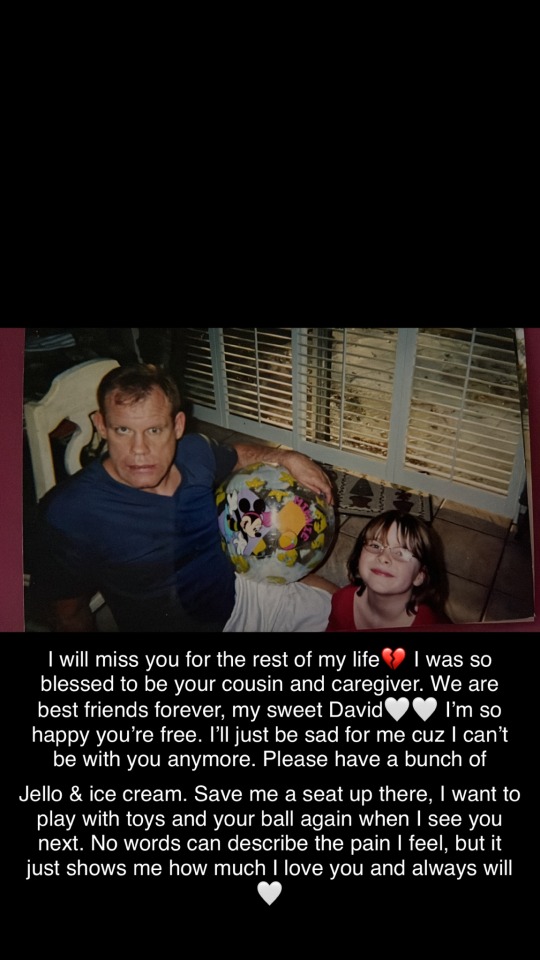
6 notes
·
View notes
Text
support my microbiome
donate your microbes today
3 notes
·
View notes
Text
PET CT SCAN WARANAL | BANNU MEDICAL CENTER
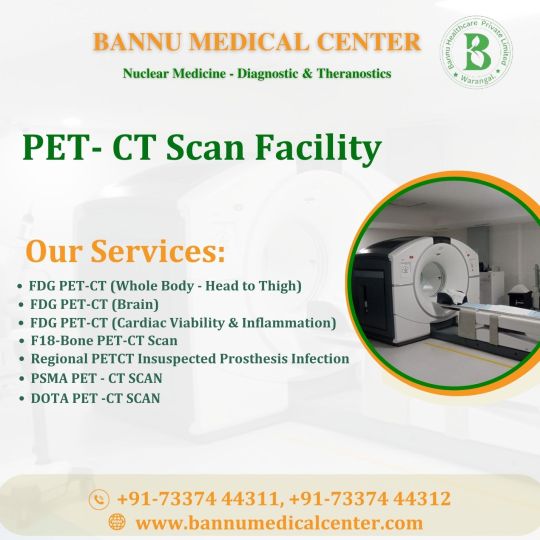
0 notes